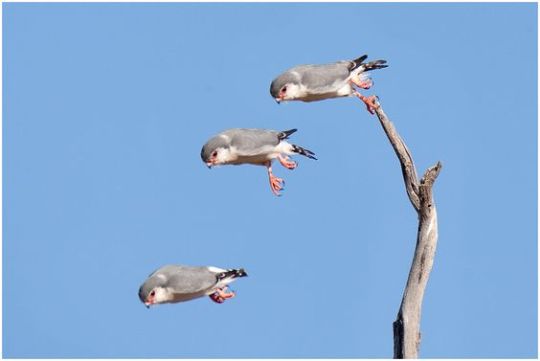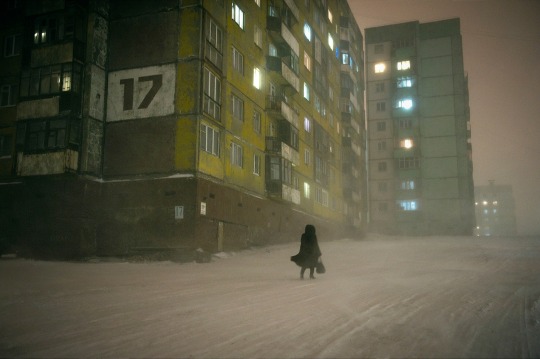"I have ninety minutes and lots of unpopular opinions, so let's get started."
Don't wanna be here? Send us removal request.
Text
bucket closure time
I was planning to leave tumblr in March, as I turn 30 and that seemed as good a time as any to declare myself Too Old For This Shit. Given the general awfulness of the internet right now and the fact I have a shit ton to do in the next month or so I'm going to bring it forward to today.
(yes I know the internet is currently awful for good reason, point is that it's awful in a way that does nothing useful for the inside of my head while also failing at getting me to do anything much useful in the external world)
I really like the low-effort-blog concept and some of the conversations here, but I really need to spend less time reading an neverending pile of words on the internet and tumblr is the worst offender for me.
I've just got myself a wordpress.com with the obvious name and may migrate the more coherent mathbucket stuff there, but I won't delete it from here. I will hopefully also add more stuff, probably in tumblr-fragment style rather than Serious Blog style. Anyone is welcome to contact me there, and I also set up a gmail address (username bossdrucket, drossbucket was already taken). I realise I've been pretty shit at socialising here but if any of you want to get in touch please do, I'd be very happy to hear from you and I really mean this :)
I also have a Less Wrong account (haha, wonder what I'd have made of that fact three or four years ago) and who knows, I may comment there more if it doesn't die again.
good luck everyone and enjoy your horrible internet :)
11 notes
·
View notes
Text
wtf, Moldbug posts on Shtetl-Optimized now? Why the hell has everything blended into everything else?
I have tried to avoid both Trump Discourse and Internet Drama on this blog, but…this comment thread is pretty interesting.
Mencius Moldbug (er, that’s “Boldmug” now) shows up doing his usual shtick and gets into a pretty long debate with Scott Aaronson about…well, it’s complicated. Aaronson, to his credit, responds to the Gish Gallop really well and somehow manages to stay mostly on-topic.
(Incidentally, I have been waiting for someone to write this article–I wish I had remembered to post a prediction in advance!)
8 notes
·
View notes
Text
this month in incredibly persistent brain noise
"Tarski's Dogshit Orange"
- this week in incredibly persistent brain noise
5 notes
·
View notes
Note
Last year I discovered that the American kestrel is a TINY, SUPER CUTE version of the European kestrel. But somehow I didn’t think to google for other tiny super cute falcons.
I guess this is what tumblr is for :)
Cutest bird? (To the human eye and aesthetically speaking, of course.)
I thought long and hard about this…. it’s very tough… I had to eliminate baby birds from this because that makes it too hard (it would be baby emus though, prbably… or quail.. or…)
ahem, anyway. I had to settle on the african pygmy falcon. Everyone thinks it’s a babby but it is not. It is a full sized birb.

Enjoy more pygmy falcon goodness.




tiny fluffmonsters, itty bitty fuzzy beasties, squishy teeny killer toes.
Photo credits:
X X X X
5K notes
·
View notes
Text
Hopefully I’ll have time to answer the questions later as there’s some stuff that interests me here, but as a first pass this is pretty accurate for me too if you swap all the ‘male’s and ‘female’s around.
so i’m going around asking my friends this for research purposes. cis people, if you don’t mind talking about it, could you reblog this and describe what being your gender feels like to you? how do you know you’re the gender you are? is there a particular reason you wouldn’t want to be another gender? and also, how do you think sexism affects your user experience of being that gender— does it make you like it more, or less, or even matter at all?
thanks for answering!
2K notes
·
View notes
Text
That makes a lot of sense to me! I just seem to be lacking that ability to get interested in the complexity theory case either, and I’ve been reading Shtetl-Optimized for close to ten years now so probably this is a permanent state of affairs.
@drossbucket
Yeah I just read that comment and it’s striking to me too - if you’re ‘into physical reality’, surely there are easier ways to get your kicks than giant stability proofs? That does seem like a really unusual choice.
But maybe it’s partly my personal taste here. I *can* understand the appeal of certain kinds of mechanistic formula-churning, sometimes I can get into it myself, but the stuff I like is just transforming some equality endless times according to a bunch of rules, which has a certain satisfaction I don’t get from the ‘well it’s *definitely* smaller than this giant overestimate’ type of work.
Elsewhere in the thread complexity theory comes up, which also has an I-don’t-really-fancy-this kind of feel to me, but the comment does a good job of explaining why someone might like it. I guess this is just an area where my aesthetic tastes are lacking.
(btw I’ve only seen Dafermos talk a couple of times, never actually spoken to him. And I don’t really know how close his current work is to Christodoulou’s, it seems to be in the same general area but maybe he doesn’t go in for the 500-page slog type of result.)
The complexity theory stuff actually feels a lot more interesting to me, because each bound has some sort of tangible meaning it itself – “if we actually wanted to do this, in reality, we would really need at least this level of resources.” This may or may not be a statement of interest in practice, but at least it’s always connected to actual practice in this direct and obvious way.
In complexity theory it seems like the possibility space has intrinsic human interest, because you’re ruling out these conceivable algorithms you could have imagined using, at least in principle. Whereas with PDEs, when you prove some estimate, no one’s like “aw man, that excludes my favorite solutions!” They’re just means to the end of showing some final result people care about (which itself is generally not an “estimate” in itself).
56 notes
·
View notes
Text
Yeah I just read that comment and it’s striking to me too - if you’re ‘into physical reality’, surely there are easier ways to get your kicks than giant stability proofs? That does seem like a really unusual choice.
But maybe it’s partly my personal taste here. I *can* understand the appeal of certain kinds of mechanistic formula-churning, sometimes I can get into it myself, but the stuff I like is just transforming some equality endless times according to a bunch of rules, which has a certain satisfaction I don’t get from the ‘well it’s *definitely* smaller than this giant overestimate’ type of work.
Elsewhere in the thread complexity theory comes up, which also has an I-don’t-really-fancy-this kind of feel to me, but the comment does a good job of explaining why someone might like it. I guess this is just an area where my aesthetic tastes are lacking.
(btw I’ve only seen Dafermos talk a couple of times, never actually spoken to him. And I don’t really know how close his current work is to Christodoulou’s, it seems to be in the same general area but maybe he doesn’t go in for the 500-page slog type of result.)
Earlier today I was reading this nice overview of troubles with infinities in physics by John Baez, and it got me to look up Demetrios Christodoulou, a guy who writes these really, really long books/papers proving impressive things about physics-related PDEs. Like the 500-page book he and Klainerman wrote to prove a stability result in general relativity. (As far as I can tell, the whole book is more or less devoted to the proof – the earlier chapters don’t seem like review of existing results.) Or his 1000-page book proving a few theorems about shock waves in relativistic 3D fluids. His recent 600-pager proving an existence theorem for (I think) initial conditions that form black holes is on the arXiv.
It’s funny – I’m sure this guy loves what he does (there’s no other reason to do it), and certainly it’s awe-inspiring to know there is a human being out there doing it … but more than most mathematical pursuits I have a hard time seeing the appeal. It seems like the kind of work where you are fighting with the equations, rather than ascending towards a cleaner understanding of them – you prove these numerous inequalities (“estimates”), each of them saying “I may not know what this equation will actually do but I know it won’t do anything as extreme as this,” and then you chain them together to kind of “trap” the equation into admitting it has to do the thing you want, even if you still don’t really know why. This can still lead to intuitive understanding if you do it on a small enough scale, but if your proofs are hundreds of pages long I imagine it has to eventually feel like you are building a complicated fence around your object of study rather than coming to an understanding what is inside.
56 notes
·
View notes
Text
I don’t normally get much out of that kind of inequality-trapping thing either, but I have been to a couple of mathematical relativity talks by his former student Mihalis Dafermos, and he’s unbelievably, infectiously excited about this kind of stuff, so some people must like it! For half an hour we’d enthusiastically scribble down notes about stability problems in Kerr or whatever, temporarily convinced this was a fascinating field of research.
And then I’d look back at the notes a week later and think ‘um, what? I don’t understand anything about this stuff, and can’t remember why I even found it interesting.’
Earlier today I was reading this nice overview of troubles with infinities in physics by John Baez, and it got me to look up Demetrios Christodoulou, a guy who writes these really, really long books/papers proving impressive things about physics-related PDEs. Like the 500-page book he and Klainerman wrote to prove a stability result in general relativity. (As far as I can tell, the whole book is more or less devoted to the proof – the earlier chapters don’t seem like review of existing results.) Or his 1000-page book proving a few theorems about shock waves in relativistic 3D fluids. His recent 600-pager proving an existence theorem for (I think) initial conditions that form black holes is on the arXiv.
It’s funny – I’m sure this guy loves what he does (there’s no other reason to do it), and certainly it’s awe-inspiring to know there is a human being out there doing it �� but more than most mathematical pursuits I have a hard time seeing the appeal. It seems like the kind of work where you are fighting with the equations, rather than ascending towards a cleaner understanding of them – you prove these numerous inequalities (“estimates”), each of them saying “I may not know what this equation will actually do but I know it won’t do anything as extreme as this,” and then you chain them together to kind of “trap” the equation into admitting it has to do the thing you want, even if you still don’t really know why. This can still lead to intuitive understanding if you do it on a small enough scale, but if your proofs are hundreds of pages long I imagine it has to eventually feel like you are building a complicated fence around your object of study rather than coming to an understanding what is inside.
56 notes
·
View notes
Link
I’m not currently interested in learning any category theory, but that’s useful information to remember. I’ve also looked through a couple of supposedly easy books/online notes just out of interest (not Mac Lane though), and the learning curve normally seems to be something like:
Page 1: “Category theory is fun! It’s about some objects and some transformations between them! Consider Set as an example. It’s just sets and functions. This is easy :) :) :)“
Page 5: “Let F be an forgetful functor taking values in a braided monoidal bicategory such that the groupoid representation defines a Yoneda embedding in...”
um, you what?
Tom Leinster’s book on Category Theory, free.
46 notes
·
View notes
Text
“Have you ever considered a career in which you paint pictures of astronomical objects?”
When she applied to Swarthmore College as a science major and casually told the admissions officer that she liked to paint, the interviewer said, “Have you ever considered a career in which you paint pictures of astronomical objects?” She recalled, “That became a tag line in my family: for many years, whenever anything went wrong for anyone, we said, ‘Have you ever considered a career in which you paint pictures of astronomical objects?'”
quoted here.
72 notes
·
View notes
Text
!!
I realise I may be a little stuck on the object level here, but ten thousand crows? Now I want to go to Seattle
extremely incoherent thoughts about seeing ten thousand crows a few hours ago
If you visit Seattle, GO TO BOTHELL CAMPUS AND SEE THE CROWS. Ten thousand crows gather there every dusk and seeing them was a spiritual experience. (Like I literally could not resist the urge to kneel down because I was so moved by them.)
There are… so many. And they all have minds. Minds that are so unbridgeably different from my own, but still minds. Minds built for flying and for living with crows. Their caws all sound the same to human ears, but they can communicate.
I called out to them that I wanted to be the friend of all of them, but their minds are too different for that. But I can admire them - so many of them! I really just… appreciate their existence. There is something holy about appreciating a very different, very real mind, and that is what I was kneeling for.
And there is something holy about vastness. Without condoning animal suffering, without assuming the natural order is automatically correct… the abundance of life is amazing. I didn’t say good. I didn’t say bad. I said amazing.
I think the crows in Seattle probably like being alive. And when I saw them, I was happy. I was happy to see them and happy they were alive and happy to be with my fiance and happy to be safe and well. I was happy that crows in cities have abundant food and happy they are beautiful and happy they are all together (they presumably like it? Since they have the drive to do it?) and it was good and joyful.
But even if the crows are miserable, the crows are holy.
Holy isn’t good. Holy isn’t bad. Holy is holy, and the experience of ten thousand crows is holy.
The experience (as opposed to the system two level knowledge) of ten thousand crows is something you should get if you have the chance. There is just so much in the world. There are seven billion humans and they all have complex internal worlds. And there are so, so many animals and they have minds that are unimaginable. I hope their lives are good enough that they wouldn’t prefer nonexistence. But. There is just so much, so much unfathomable stuff, it seems ridiculous to either say “the world is horror; this life shouldn’t be, we must reduce life because it is pain” or “the world is joy, life should be, we must increase life because it is joy.” We don’t know our own minds, much less the minds of the rows. We don’t know for sure if a bee even has a mind. But there is this hugeness, this unknowable thing which can still be glimpsed and that is holy. Whether it is good or bad, it is a thing of awe.
I don’ think we should trust holiness. So much of my aesthetic/survival/sanity is about fighting holiness. If we one day know enough about wild animal lives to be sufficiently sure that nature is evil, and we have the technology to pave over hell and put up a parking lot, then bring on the paving. That will be holy too; holy and good. (Holy and good are uncorrelated.) If humans get that kind of power, that vastness will be holy. If we are small and holiness is vast but evil we must fight it; fighting evil holiness is good. But we need to experience holiness. The holiness of ten thousand crows is complicated, but it is at least not evil. It is just vast. Vast good and vast bad and vast neutral in those ten thousand minds. We need to see vastness.
But I think people also need to experience holiness, to an extent. The experience often thousand crows is holy, and it’s not lying. It is not a little white bread disc of lies that only has holiness because people have said things and done things that make the experience of holiness attach to it. There is no mass of the crows, there is only the crows. The crows will be real whether you experience them or not, and that makes the holiness of the crows more real.
@nihilsupernum you are the sort of person who understands these things?
This post was composed with the aid of alcohol. Just so you all know not to worry about me.
65 notes
·
View notes
Text
“well I’d describe myself as socially liberal, but economically ignorant”
239 notes
·
View notes
Text
"Tarski's Dogshit Orange"
- this week in incredibly persistent brain noise
5 notes
·
View notes
Text
rewilding less wrong
[Note: I started writing this last weekend, and I have to admit that in the intervening week my dash hasn't exactly been set alight with excitement for the revival of Less Wrong. Even the SSC links post commenters didn't seem to show much interest. So maybe LW is a dead duck, or at least a duck with very narrow appeal. I've still got myself an account, though, and plan to go and find out.]
So it looks like some people are pretty serious about reviving Less Wrong. This could be fun!
I didn't pay too much attention to the previous discussions on how to do this, because they mostly seemed very technological: how to redesign the look of the site, how commenting should work, whether to move to an aggregator format. I'm sceptical that any of that matters, at least right now. There are ridiculous numbers of people active on SSC, despite the fact it's just a blog with a few hacks added to make it borderline usable as a rudimentary discussion forum. People are there anyway because that's where the interesting writing is.
So -- possibly -- all that's needed to rewild Less Wrong is a few of the old apex predators returning, and actually writing things people want to read. That's what the current proposal seems to be about, so I'm intrigued to see what happens. I'm hoping there'll be some sort of trophic cascade, and various strange animals of the diaspora will wander back to see what's going on.
It's maybe odd that I care, given that I was never around there in the first place. I'm sort of sad I missed it, but really I can't work out by now whether it was the kind of thing I'd have liked in 2008. (2008-era LW is definitely not something I'd enjoy now, but I doubt that a new version would look like exactly like that anyway.) I was lurking around a similar area of the internet (various science blogs) and must have been at least vaguely aware of LW - I do remember Scott Aaronson's 'The Singularity is Far' post. So maybe I had seen it, but it just didn't appeal even then.
I thinks it's mainly interesting to me because of the specific people who are going back. If it's Sarah Constantin and Anna Salamon writing there, that has a serious chance of being the good stuff as far as I'm concerned. Otium is great - I'm very much in favour of speculative thinking, and against the idea that people should avoid venturing outside their narrow specialisms. And Anna Salamon will presumably write about the instrumental rationality side of LW, which I find really interesting, even if some of the probability-and-logic-heavy framing often feels off too me. (And speaking of that, David Chapman has made an offhand comment about maybe coming back to LW. Now that really could be fun!)
I'm going to be posting as drossbucket, it's a dumb name but I've come to like it. I doubt I’ll post much, it’s not like I write a whole lot here as it is, but I’ll give it a try at least.
3 notes
·
View notes
Link
“You can preempt embarrassment by declaring that you’re doing something shitty on purpose. That puts you in a position of safety. You move to a space for trashy, casual, unedited talk, and you signal clearly that you don’t want to be taken seriously, in order to avoid looking pretentious and being deflated by criticism.”
This is a callout post for the kind of person who gets a tumblr and calls it ‘drossbucket’. Also an excellent post that I agree with, even if I’m very obviously extremely bad at living up to its standards.
I’m glad I’ve got this shitty tumblr, though. It’s got me writing at all, whereas previously I was too nervous of criticism, or just horribly embarrassed by what I’d written. Everything I wrote got deleted. This time I don’t feel the need to do that, so that’s progress I suppose.
I’m interested in the LW revival attempts - more on that later, hopefully. Probably going to sign up for an account, though I suppose I first have to decide whether to go by drossbucket or not.
0 notes
Text
“don’t take my word for it, look at the numbers”
“The measurable trends of the past half-century, and the plausible projections for the next half-century, are just too empirically grounded to dismiss as dismal science or ideological hokum. They look like the data on climate change – you can deny them if you like, but you’ll sound like a moron when you do.”
This must be the most annoying example I’ve seen yet of someone using the currently-popular language of data and statistics and “empirically grounded” “measurable trends” as weaponised buzzwords in the service of intimidating people into agreeing with them, because otherwise they’ll “sound like a moron”.
Can't we just keep on calling each other morons the old-fashioned non-data-driven way?
#it's rant o'clock on saturday morning here#i thought they were a journalist but it's a history professor :(
1 note
·
View note
Photo
If anyone wants lots more pictures of Norilsk, taken by a grumpy Russian designer with a seemingly infinite travel budget and an obsession with dumpsters and street furniture, this is the place to go. Plus lots of photos of the place where they mine anhydrite to fill in all the other mines to prevent collapse. The Yakutsk ones are also really fascinating.
Mainly I just love the captions though:
‘The café serves horrible pasta and the gas station attendant answers the question “Where’s the bathroom?” with “Why, all of Yakutia!” and a big circular arm gesture.’









Elena Chernyshova aka Елена чернышова (Russian, b. 1981, Moscow, USSR, based France) - Days Of Night, Nights Of Day project, 2012-2013. Days of Night, Nights of Day is about the daily life of the inhabitants of Norilsk, a mining city northernmost of the polar circle with a population of more than 170,000. The city, its mines and metallurgical factories were constructed by prisoners of the Gulag. With 60% of the present population involved in the industrial process, this project aims to investigate human adaptation to extreme climate, ecological disaster and isolation. Photography
6K notes
·
View notes